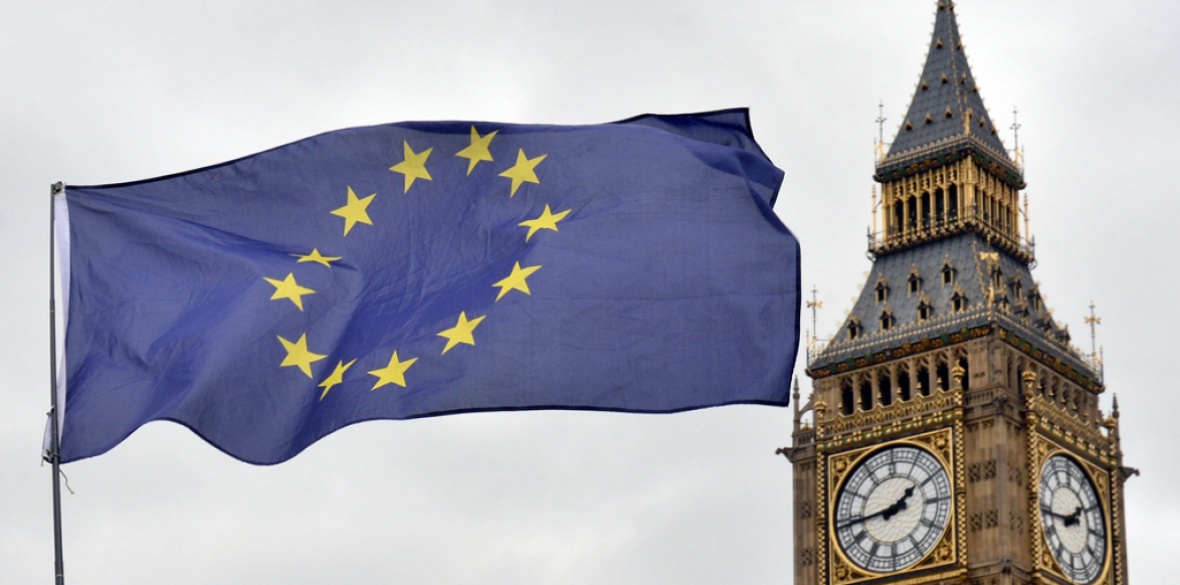This is the last article you can read this month
You can read more article this month
You can read more articles this month
Sorry your limit is up for this month
Reset on:
Please help support the Morning Star by subscribing here
ARE attitudes to the EU changing among Europe’s parties of the left? On the basis of last week’s meeting in Lisbon the answer is a qualified Yes.
There is now a much fuller rejection of the EU as a neoliberal, pro-competition and anti-working class institution — not by all on the left but certainly marking significant change.
Organised by the Portuguese Communist Party under the auspices of the European United Left/Nordic Green Left parliamentary grouping, delegates attended from Portugal, Spain, Cyprus, Belgium, Britain and Sinn Fein from Ireland.
The position of most delegates was that project to reform the European Union, to create a “social Europe,” had definitively failed.
This assessment was embedded in the meeting’s title, “No to a European Union of transnational companies and big powers — Yes to a Europe of co-operation, social progress and peace.”
All contributions, from every country, reflected the sharpness of the continuing EU assault, institutionally, socially and economically, on the lives of ordinary people.
United Left MEP from Spain, Paloma Lopez Barmejo, spoke of the “incredible increase” in inequality in her country.
“Labour reform” had been used as a cover for the destruction of collective bargaining and the creation of a mass of workers without rights or contracts.
She also castigated the barbarity of EU treatment of refugees seeking to cross the Mediterranean — in the case of Spain around the Gibraltar peninsula — and the new EU Border Force policing.
Neoklis Sylikiotis MEP from the Progressive Party of Working People (Akel) in Cyprus attacked the increasing EU subordination to the military agenda of its big powers, creation of the Rapid Reaction Force, integration with Nato and the new five-year military budget of €38 billion.
“This is about boosting the EU already strong military-industrial complex and about the assertion of power — in the Middle East, north Africa, eastern Europe and the Balkans — driven by the economic needs of big business.
“The EU is becoming more and more a force for military intervention. Monetary union generates increasingly uneven development and crisis. The EU as constituted today cannot be reformed.”
A frequently repeated phrase was the “need for rupture.” This was a position that took at least some of its meaning from developments in Britain.
It referred particularly to the Labour Party commitment to take forward the Leave vote in a progressive direction, ensuring that any settlement with the EU excluded all EU neoliberal, pro-business economic and political regulations though offering co-operation on other fronts.
This, it was argued by the Communist Party of Britain, offered a new model for relationships internationally.
Mark Botenga of the Belgian Workers Party also talked of the need to break with existing EU treaties and end enforced undemocratic subordination to big business.
“The whole logic of the EU since the late 1980s had been the unleashing of competition against labour. Business has become more monopolised and more centralised. Yet the existing national protections for labour have been stripped away.
“One of the great successes of the EU neoliberal agenda has been to use the crisis to penetrate national institutions. The 2016 directive for the establishment of national competitiveness boards targets in particular collective bargaining.”
Also talking about “rupture” and breaking with current structures was Portuguese Communist Party general secretary Jeronimo de Sousa. He categorised current plans, advanced by France and Germany, to restructure the EU as a “new stage in European capitalist integration.”
He warned of the dangers, saying: “This means further concentration. It means big power interests overriding smaller states.
“It requires subordination of existing national identities, particularly the progressive gains of working people embodied in national institutions, and thereby opens the door to reactionary and fascist ideology. At a time of increasing economic conflict between the major capitalist states globally, this is a particularly lethal combination.”
Portuguese MEP Miguel Viegas stressed the dangers of one key element of these new plans for integration, banking union.
“This union is not about stability. It has in fact rehabilitated the recycling of dubious credits. The real aim is to remove one remaining instrument of economic intervention by national governments, using banking credit to reflate economies.”
A contrasting position came from Northern Ireland Assembly member Michelle Gildernew, representing Sinn Fein. She noted her party’s previous opposition to the Lisbon Treaty but stressed Sinn Fein’s current belief that a social Europe could be secured and argued for a critical engagement with the institutions of the EU.
In this context she was sharply critical of Brexit, insisting: “Today, Brexit challenges the well-being of all of the people of Ireland. There will be incalculable damage in terms of peace and economic life if Ireland is split north and south.”
All of Ireland, she argued, must remain within the EU or the EU single market.
In general, however, the meeting did mark a turning point. There was a much more explicit emphasis on the need for rupture. Almost every contribution highlighted the assault currently taking place on the basic institutions of working-class organisation.
The position taken by the British Labour Party was broadly welcomed — co-operation between peoples not enforced competition on the terms of the capitalist market.












